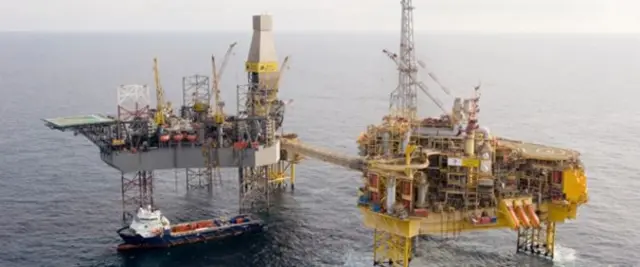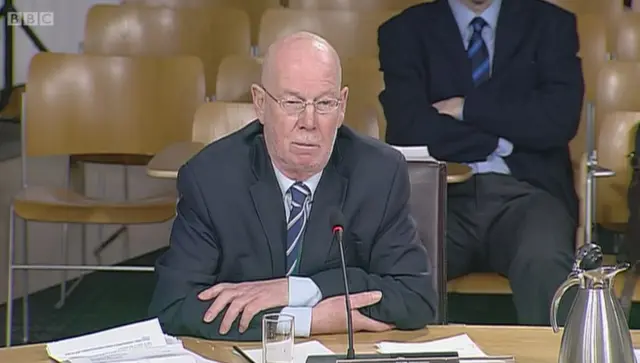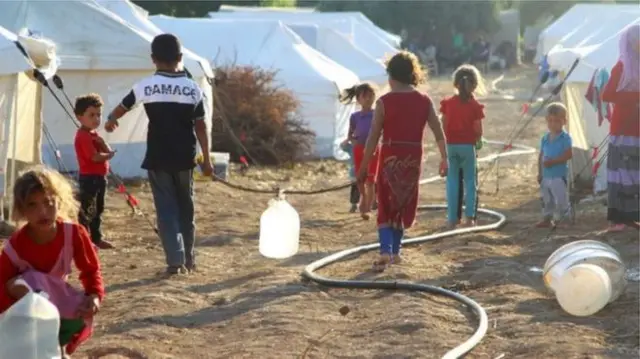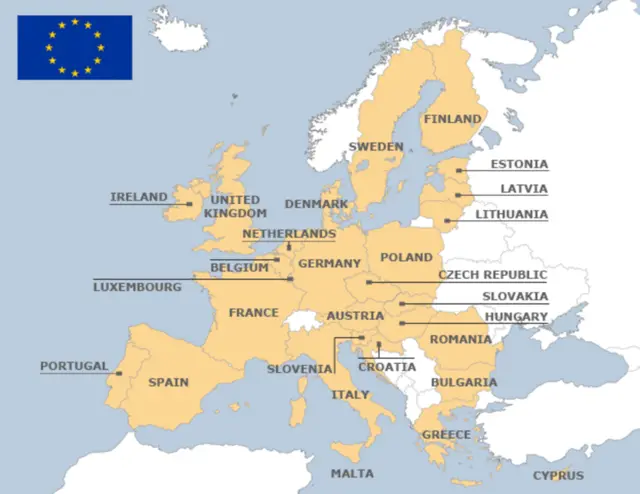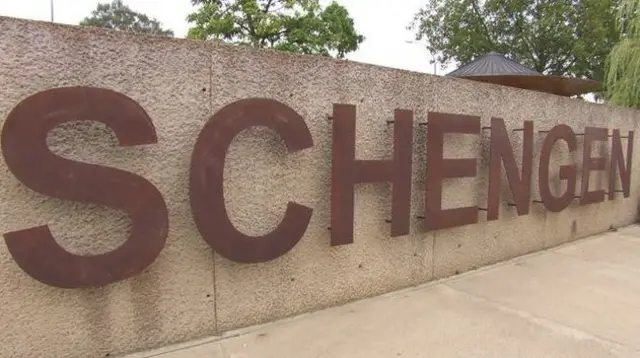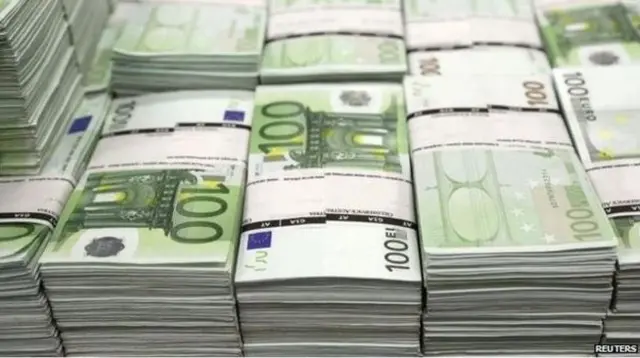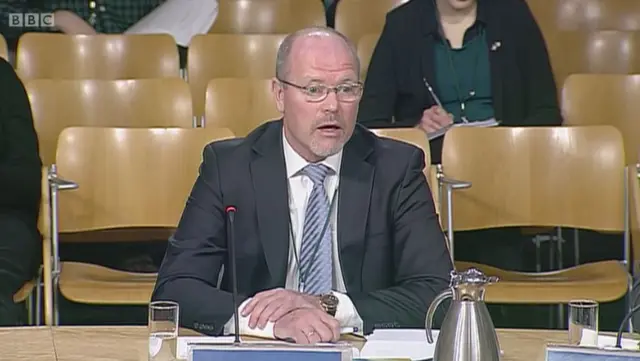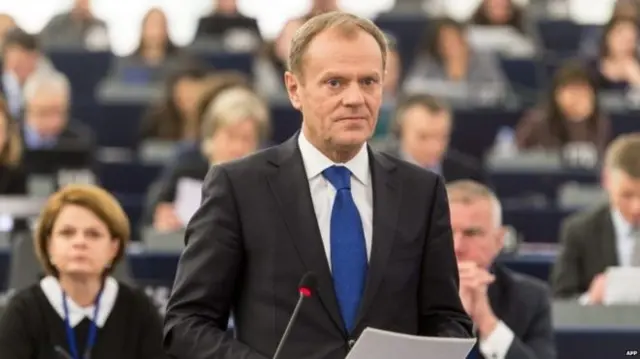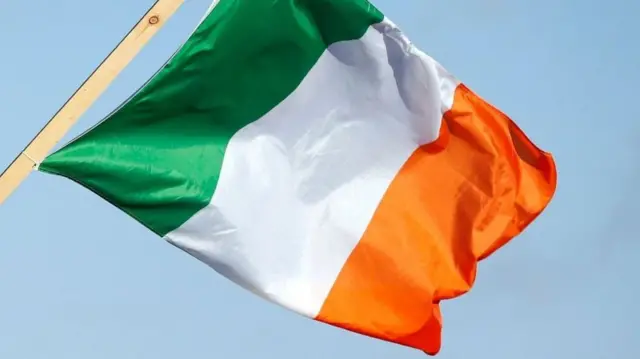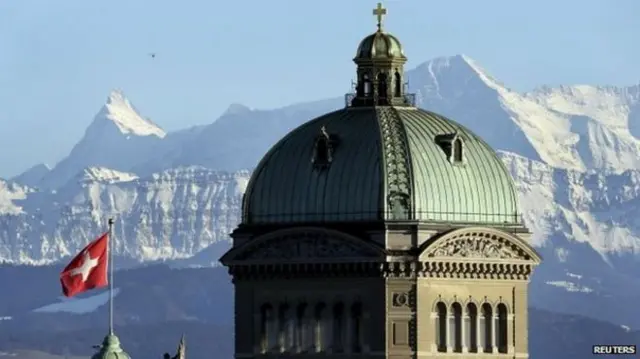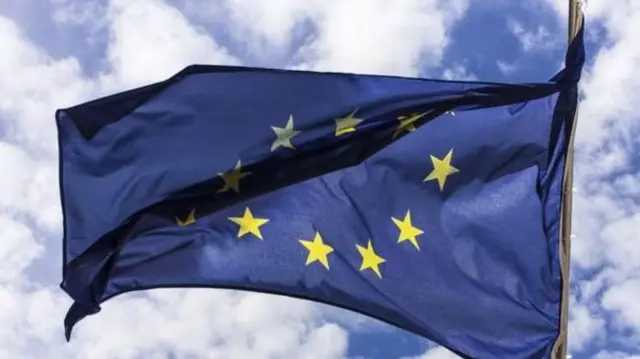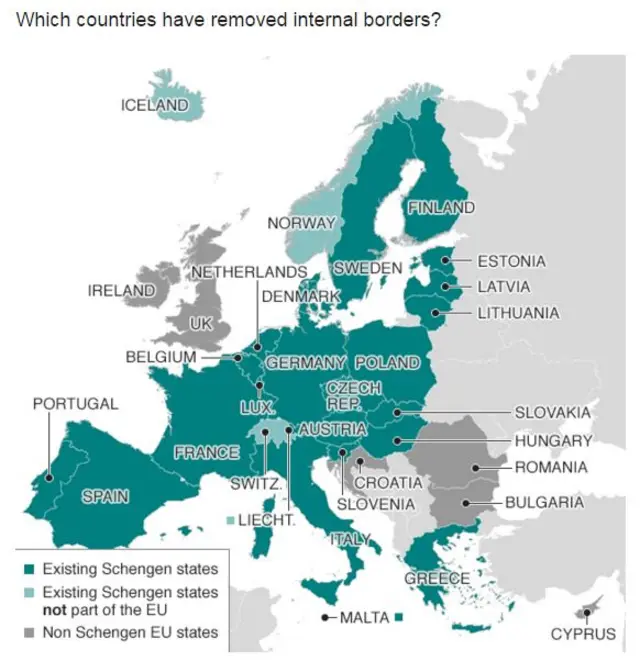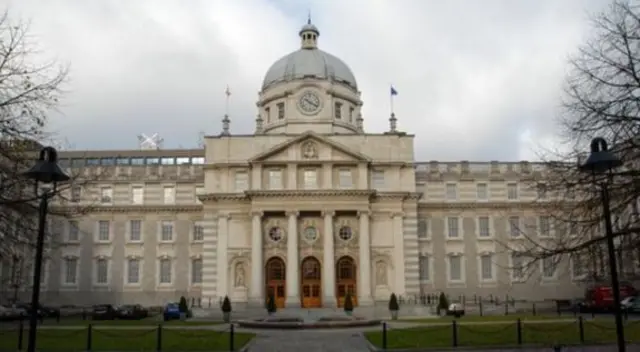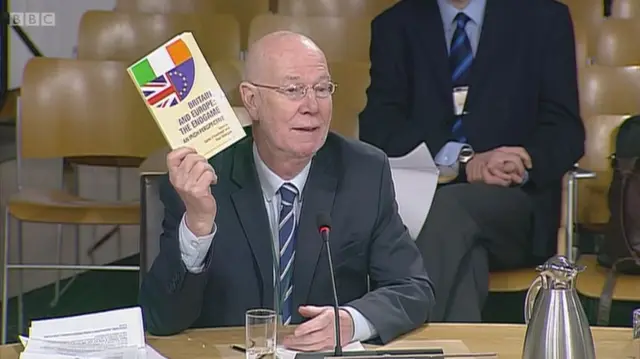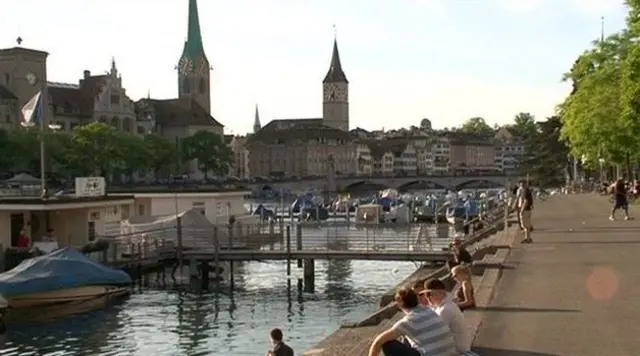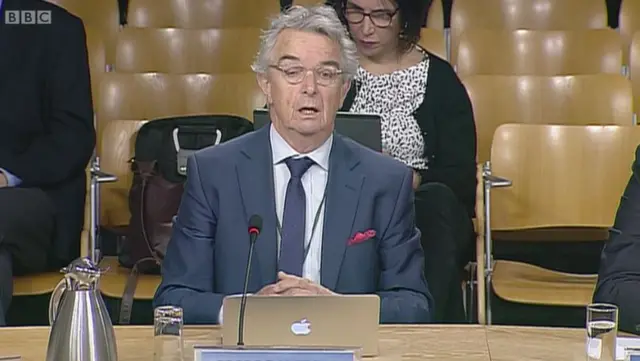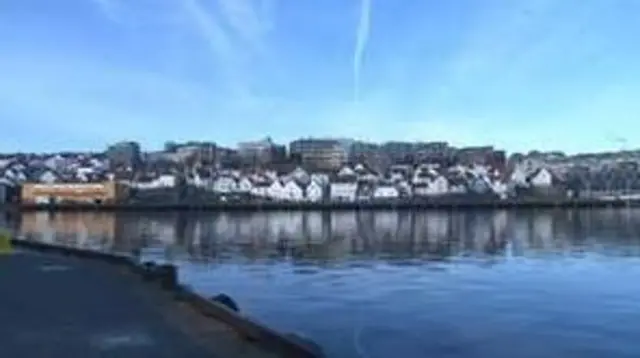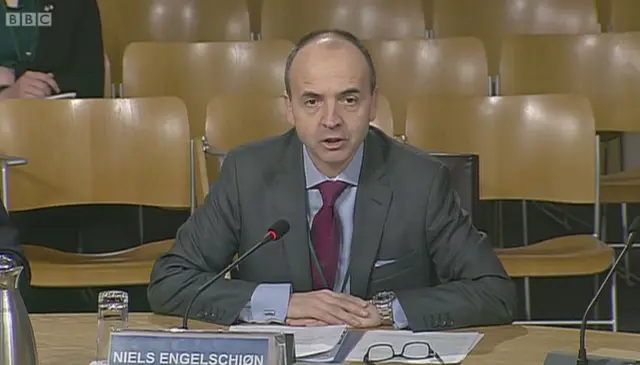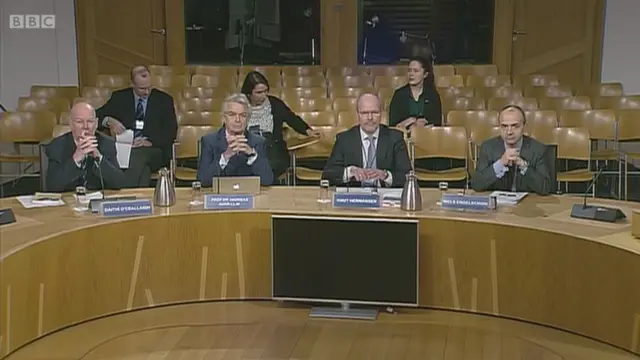Background: What are the main changes David Cameron hopes to make?published at 10:42 GMT 21 January 2016
Mr Cameron set out the four key ways he wants to change the UK's membership of the EU in a letter to European Council president Donald Tusk, external in November:
- Integration: Allowing Britain to opt out from the EU's founding ambition to forge an "ever closer union" of the peoples of Europe so it will not be drawn into further political integration
- Benefits: Restricting access to in-work and out-of-work benefits to EU migrants. Specifically, ministers want to stop those coming to the UK from claiming certain benefits and housing until they have been resident for four years. But the European Commission, which runs the EU, has said such a move would be "highly problematic". Ministers have reportedly been warned by the UK's top civil servant this could be discriminatory and any limits may be reduced to less than a year
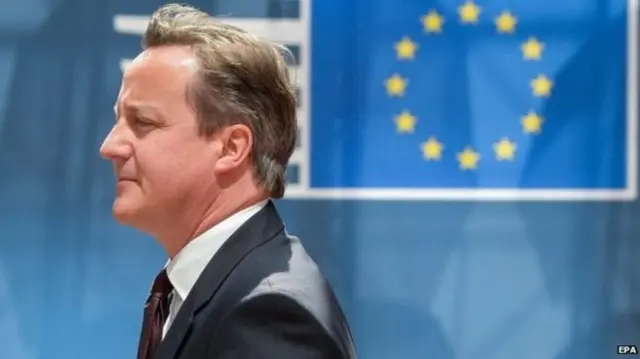 Image source, EPA
Image source, EPADavid Cameron
- Sovereignty: Giving greater powers to national parliaments to block EU legislation. The UK supports a "red card" system allowing member states to scrap, as well as veto, unwanted directives. But this may only be triggered by states acting together, not the UK acting alone
- Eurozone v the rest: Securing an explicit recognition that the euro is not the only currency of the European Union, to ensure countries outside the eurozone are not materially disadvantaged. The UK wants safeguards that steps to further financial union cannot be imposed on non-eurozone members and the UK will not have to contribute to eurozone bailouts
